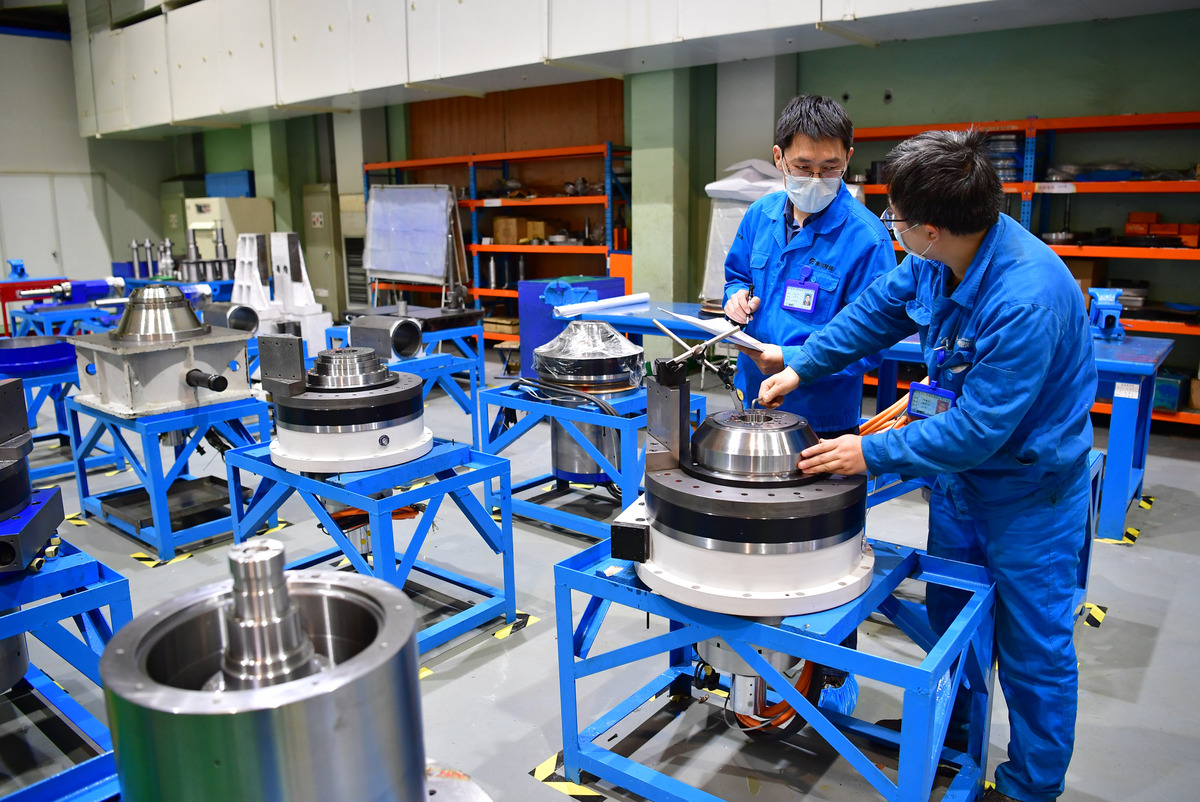
Efforts on to make State-owned firms more competitive and resilient to risks
The upcoming three-year action plan for State-owned enterprises (2020-22) will strengthen China's efforts to steer the economy toward innovation and technology-driven high-quality growth, experts said on Wednesday.
The comments came after the 14th meeting of the Central Committee for Deepening Overall Reform reviewed and approved the three-year action plan for SOE reform (2020-22) on Tuesday, according to information released by the State-owned Assets Supervision and Administration Commission of the State Council.
The next three years will be crucial for the country's SOE reforms, the meeting said, stressing efforts to optimize the layout and structure of the State-owned economy to make it more competitive, innovative, controllable, influential, and more resilient to risks.
Li Jin, chief researcher at the China Enterprise Research Institute in Beijing, said the plan to further focus on mixed-ownership reform and reorganization will improve the State capital regulations, free SOEs from their social program obligations and resolve other long-standing issues.
Mixed-ownership reform, a breakthrough component of overall SOE reform, has seen considerable progress in the past year. More than 1,000 new mixed-ownership enterprises were added and more than 150 billion yuan ($21.23 billion) of social capital introduced via the capital market and other financing measures, according to data from SASAC.
In addition to attracting social investors from the domestic market, German auto giant Volkswagen AG spent 1 billion euros ($1.12 billion) in late May to acquire a 50-percent stake in a subsidiary of Anhui Jianghuai Automobile Group Corp, or JAC, and will increase its stake in the joint venture JAC Volkswagen to 75 percent from 50 percent soon, marking the first case of foreign capital being involved in the mixed-ownership reform of a State-owned automaker in China.
The deal, which is expected to be concluded within this year, will help Volkswagen gain management control of JAC Volkswagen, paving the way for more electric car models and infrastructure.
"The reform will not only create more commercial vitality and expand overseas sales channels for SOEs, but also introduce a market-oriented remuneration system to better reward outstanding performance and incentivize innovation," said Lin Wei, a Global Strategy Group partner at KPMG China.
The involved parties should also consider, among other components, ownership structure, digital and technology adoption and how to create shareholder value, he said.
He expects the planning process of the 14th Five-Year Plan (2021-25) period to offer a great opportunity for SOEs to think strategically and proactively about how to steer their own transformation and build key initiatives into their plans.
Although the COVID-19 pandemic, geopolitical uncertainties and trade tensions will undoubtedly bring many new complexities and concerns, they will not be barriers that slow down the SOE reforms; rather they well be the catalysts for reform, said Liang Jun, president of the Guangdong Association of State-owned Capital in Guangzhou.
China's SOEs will focus more on their main businesses, establish sound market-oriented operating mechanisms and further cut their monopoly roles to better adapt to the changing market environment, he said.
To better compete with global rivals, Liang said the mixed-ownership reform in sectors such as information technology, new energy and high-end equipment manufacturing has notably surged since 2019, indicating the country's policy requirements for optimizing the State-owned capital layout and resources.
Thanks to the country's economic recovery and a number of big-ticket investment projects to be conducted in the second quarter of this year, the profits of China's SOEs rose by 251.1 percent in May on a monthly basis, the Ministry of Finance said earlier this week.
In the first five months, the gross revenue of SOEs reached 21.84 trillion yuan, down by 7.7 percent on a yearly basis, compared with the 9.2-percent drop during the January-to-April period, the official data showed.
